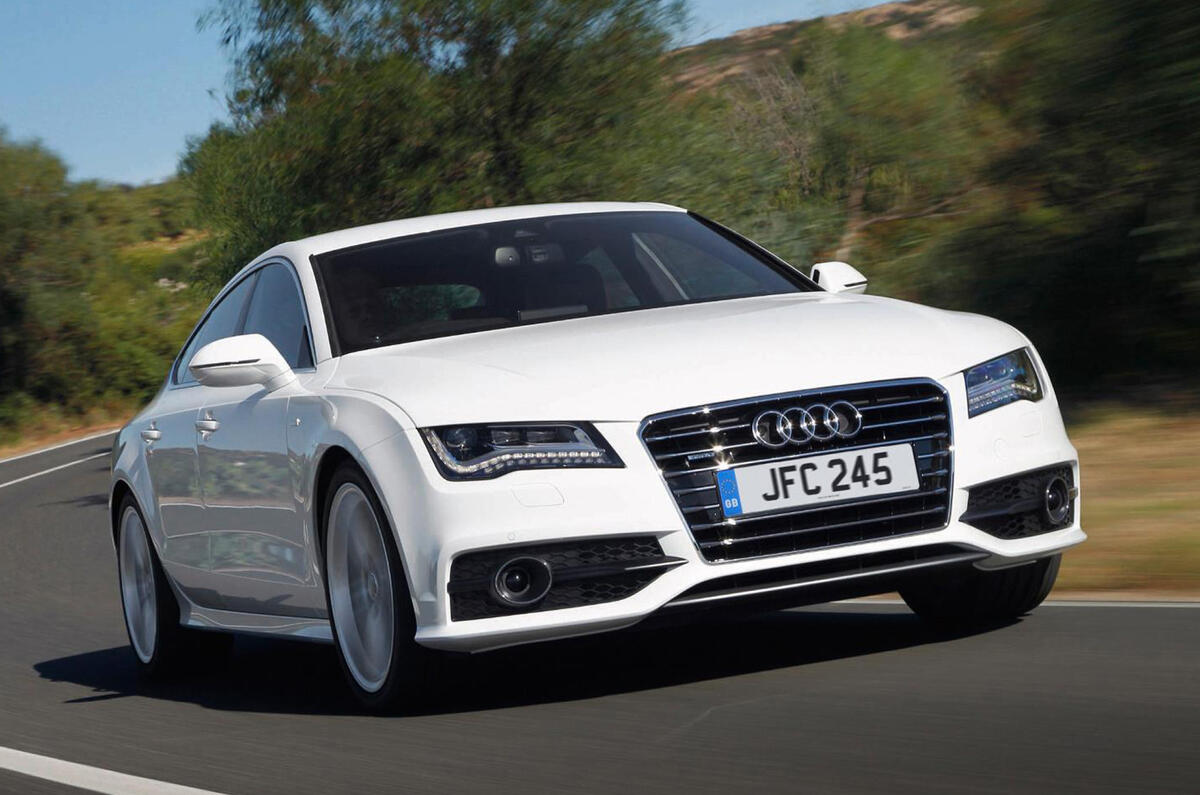Audi's technical chief Wolfgang Dürheimer has told Autocar that the company is developing a fuel cell-powered Audi A7.
The fuel cell-equipped Audi A7 is due to begin trials at the end of August and is believed to be part of Audi's new 'tron' range of sustainable technologies.
Fuel cells generate electricity and heat through an electro-chemical reaction between a fuel and oxygen. In automotive applications they typically use hydrogen as the fuel and oxygen from the ambient air, so the only by-product is water.
The electricity produced can be used to charge a battery, or to directly drive electric motors for propulsion, while the waste heat can be captured for thermal systems or additional electricity generation via thermocouples.
It's not the first time that Audi or the Volkswagen Group has trialled fuel cells. In 2009, Audi tested the Q5 HFC, which used two high-pressure cylinders of hydrogen to supply a fuel cell powering the Q5 HFC's twin electric motors.
Hydrogen-powered vehicles, which only emit water, are desirable to manufacturers looking to bolster their green credentials. Fuel cell vehicles can also be refuelled quickly, unlike electric vehicles, which take time to charge.
Alternative fuels – including hydrogen and natural gas – are of particular interest to Audi and will remain so until battery technology improves and charging infrastructures expand.
The lack of an established hydrogen infrastructure, however, may prove to be a similar stumbling block for the technology.




Join the debate
Add your comment
for those who commute into
for those who commute into central london anything that avoids congestion charge is a huge plus.
Anabolic Steroids on Facebook and buy steroids on Twitter.
LOL another waste of shareholder's money
How much money are VW group blowing on these hydrogen car projects? How much of that is taxpayer money?
It's hilarious they announce this, when today Tesla announced by 2015 there's going to be a network of their supercharger charging stations that will cover 98% of the states. And they will be free to use for life for all Tesla owers...
The Germans have really missed the boat big time here. They are also beginning to get a severe case of sour grapes - http://green.autoblog.com/2013/05/20/audi-starts-tesla-rivalry-attacks-models-success/ - after Tesla's model S outsold the Audi A8, BMW 7 Series and Mercedes S class in North America.
Hydrogen is a fossil fuel in disguise.
Sadly hydrogen like electricity powered cars are just fossil fuelled cars in diguise.
Unless the electricity or hydrogen comes from a renewable source, very unlikely for the next 30 years or so, thay are really just fossil fuelled cars.
Most hydrogen is produced by using methane , natural gas, just like much electricity is produced by natural gas.
Maxecat wrote:Sadly
sadly some of the older, bigger buffoons at Autocar seem to think that a hugely complicated fuel cell car with zero infrastructure and all the inherent problems of current fossil products (eg the fact they explode) are a long term answer.
You just have to hope that if they keep having their lunches bought for them by the industry in exchange for more PR nonsense spouted in print here and in the magazine they'll go pop - much like hydrogen does.
The simple fact is that if hydrogen is a supposed answer to the fossil fuel problem it a) clearly isn't, as you state, and b) will not have widespread availability for probably 50 years. If ever.